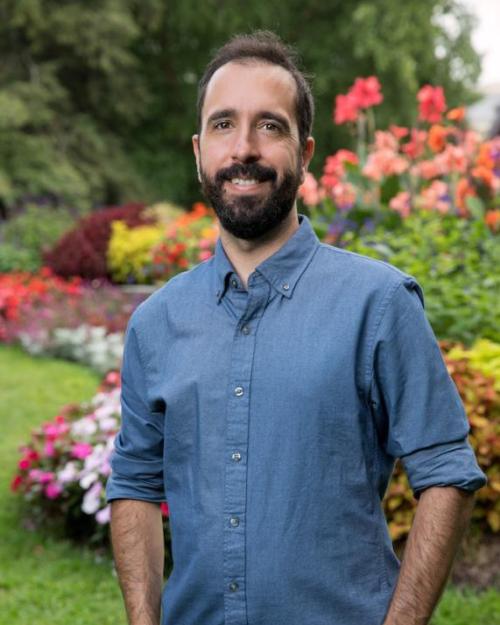Antonio Fernandez-Ruiz, assistant professor and Nancy and Peter Meinig Family Investigator in the Life Sciences in the Department of Neurobiology and Behavior in the College of Arts and Sciences, has been named a Pew Scholar and awarded a biomedical sciences grant from the Pew Charitable Trusts.
The grants, given to 22 early-career scientists, include four years of funding to uncover fundamental insights about human health and disease.
The 2025 class of Pew Scholars in the Biomedical Sciences —all early-career, junior faculty—marks the 40th group of Pew scholars to be awarded funding since the program’s founding in 1985. They join a network of more than 1,000 Pew-funded scientists and will have opportunities to meet annually to exchange ideas and form collaborations across disciplines.
The award will allow Fernandez-Ruiz to pursue research that aims to elucidate the brain mechanisms that allow animals – including humans – to form internal mental representations of the world, known as cognitive maps.
“These cognitive maps support everyday behaviors such as navigating the streets of a city or remembering the relationships between people in a group,” Fernandez-Ruiz said. “Importantly, their disruption in mental diseases such as Alzheimer’s and schizophrenia leads to memory and cognitive impairments.”
Fernandez-Ruiz and researchers in his lab developed new technology for recording and manipulating the activity of hundreds of neurons across brain areas. This allows them to investigate how cognitive maps are generated in the brain and disrupted in disease.
“This research could pave the road for developing new therapies for treating cognitive deficits in mental disorders,” Fernandez-Ruiz said.
Fernandez-Ruiz was also awarded a MIND Prize (Maximizing Innovation in Neuroscience Discovery) from the Pershing Square Foundation in 2024 and a New Innovator Director’s Award from the National Institutes of Health’s High-Risk, High-Reward Research program in 2023. He won the 2022 Freedman Prize for Exceptional Basic Research and a 2022 Sloan Research Fellowship from the Alfred P. Sloan Foundation.
He studied biology and physics at the Universities of Sevilla and Madrid in Spain and earned his Ph.D. at the Complutense University of Madrid in 2015, investigating the biophysical basis of brain oscillations and developing mathematical tools to analyze them.
“For 40 years, Pew has supported young, talented researchers as they take creative approaches to solving big scientific questions,” said Donna Frisby-Greenwood, Pew’s senior vice president for Philadelphia and scientific advancement. “This new class continues that legacy, and we look forward to seeing where their discoveries lead.”
Kathy Hovis is a writer for the College of Arts and Sciences.




